International Day of Tolerance
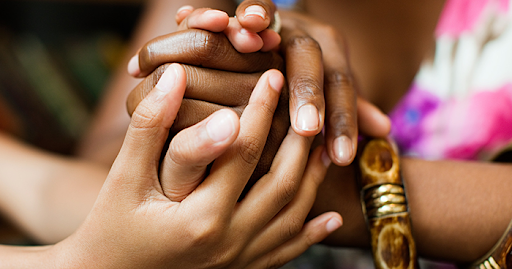
Tolerance Picture Culled from: ODYSSEY Tolerance. Noun tol•er•ance ˈtä-lə-rən(t)s, ˈtäl-rən(t)s : Willingness to accept feelings, habits, or beliefs that are different from your own Merriam-Webster Dictionary A relatively simple word. Why then is so hard to understand? Why is it so difficult to apply in our everyday lives? The world is filled with greatly intolerant people unwilling to understand that by virtue of our humanity, race, gender, sexuality, nationality, tribe or religion, we CANNOT ALL HAVE THE SAME VIEWS OR BELIEFS. This lack of understanding has led to tribal and religious conflicts and violence, wars, terrorism, genocide, supposedly honorable killings, mob violence and so much more. Sometimes, intolerance leads to denial of an individual’s basic human rights; which in some cases is more terrifying than been killed. We believe that every human being has a right to the following; 1. A right to believe in any set of religious tenets they choose and in like manner, a right to not believe in any religion or God; 2. A right to be treated equally regardless of race, tribe, gender, sexual orientation, nationality, social strata, physical disability or level of education; 3. A right to dress in whatever manner a person chooses; 4. A right to hold views, opinions, beliefs or thoughts about any and every thing; 5. A right to form ideologies and belief systems based on the knowledge they have; 6. A right to share knowledge without forcing it down people’s throats or coming to harm for sharing that knowledge and best of all; 7. A right to believe differently from the norm or popular belief, culture, law or tradition. We believe these core values come with a limitation; that our beliefs SHOULD NOT cause harm to any human life. We may not have the same beliefs but we can TOLERATE each person’s right to their own. This mean that even if something goes against our core values, we have no right to try and force others to live, think and believe as we do. We have to find a way to respect people’s differing opinions; even if we dislike their views. As the world marks the INTERNATIONAL DAY OF TOLERANCE (as done every year on November 16 since 1995) we urge you to be more tolerant of one another and of people (slightly or vastly) different from you. We also urge you to shun bigotry, racism and perceived racial supremacy, sexism, religious intolerance, gender bias and inequality, forced sexuality and sexual orientation and all other forms of intolerance. If we do this, maybe Africa – and the world in general – can be a much better place. Do your part! Join the fight and stop intolerance today!
World AIDS Day
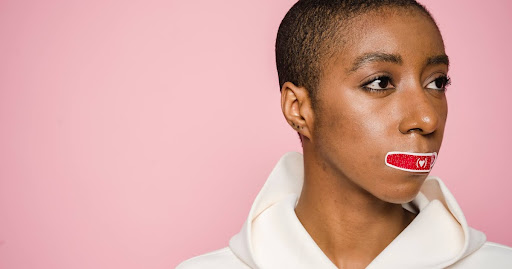
Photo by Klaus Nielsen from Pexels Today is marked globally as WORLD AIDS DAY. HIV/AIDS is still a problem in many African countries, with adolescent and young female adults being more at risk. The global HIV statistic put together by UNAIDS IN 2016 showed that; 1. 18.2 million [16.1 million–19.0 million] people were accessing antiretroviral therapy (June 2016) 2. 36.7 million [34.0 million–39.8 million] people globally were living with HIV (end 2015) 3. 2.1 million [1.8 million–2.4 million] people became newly infected with HIV (end 2015) 4. 1.1 million [940 000–1.3 million] people died from AIDS-related illnesses (end 2015) 5. 78 million [69.5 million–87.6 million] people have become infected with HIV since the start of the epidemic (end 2015) 6. 35 million [29.6 million–40.8 million] people have died from AIDS-related illnesses since the start of the epidemic (end 2015) But it is not just grim news. The fight against HIV/AIDS is working as shown by UNAIDS Get on theFast-Track: the life-cycle approach to HIV; ‘The world has committed to end the AIDS epidemic by 2030 as part of the Sustainable Development Goals. We are seeing that countries are getting on the Fast-Track—more than 18 million people are on life-saving HIV treatment and country after country is on track to virtually eliminate HIV transmission from mother to child.’ HIV is no longer a death sentence. You can live fully functional and effective lives like Fara James, who has been living with HIV for 22 years. We support preventive measures against HIV/AIDS. Measures like knowing that HIV can only be transmitted via; · Blood; · Semen; · Pre-seminal fluids; · Rectal fluids; · Vaginal fluids; · Breast milk; and · Mother-to-child transfusion. HIV cannot be transmitted through casual contact with a person infected with HIV; casual contacts like a handshake, a hug, or a closed-mouth kiss. And you can’t get HIV from contact with objects such as toilet seats, doorknobs, or dishes used by a person infected with HIV. This means there is no reason to discriminate against people living with HIV or AIDS. You can however reduce your risk of contracting HIV by; · Get tested and know your partner’s HIV status; · Have less risky sex. Oral sex is much less risky than anal or vaginal sex. Anal sex is the most risky type of sex for HIV transmission; · Use condoms; · Limit your number of sexual partners. The more partners you have, the more likely you are to have a partner with HIV whose HIV is not well controlled or to have a partner with a sexually transmitted disease (STD); · Get tested and treated for STDs; · Talk to your health care provider about pre-exposure prophylaxis (PrEP). PrEP is an HIV prevention option for people who don’t have HIV but who are at high risk of becoming infected with HIV. PrEP involves taking a specific HIV medicine every day. PrEP should always be combined with other prevention options, such as condoms. For more information, read the AIDSinfo fact sheet on Pre-Exposure Prophylaxis (PrEP); · Don’t inject drugs. But if you do, use only sterile drug injection equipment and water and never share your equipment with others. And if you are HIV positive, don’t be ashamed to visit a doctor and get medication. Shame hasn’t helped anyone. Take your medication daily and live a proactive life. And use same preventive methods as listed above. HIV/AIDS is a disease, not a reason to stigmatize someone. Show someone love today. You never know how far it will go.
1 Girl 1 Pad Campaign
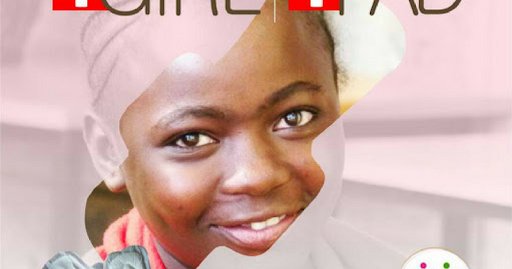
Shades of Us is a forum for open discussions on issues affecting Africa, Africans and people of African descent, with a view of changing the ‘dark continent’ narrative of Africa. Since our inception in 2014, most of our work have been online campaigns for or against social issues and dysfunction. At the start of the year, we pledged to start doing more people-to-people work to affect our society; one community at a time. It is in lieu of this that we are partnering with Save our Women (SOW) Foundation for the ‘1 Girl, 1 Pad’ campaign. Save Our Women (SOW) Foundation seeks to help young girls be their best in everything they do. Also partnering with Save Our Women (SOW) Foundation is Women Regaining Value, a not-for-profit organization aimed at empowering women lost to social degradation. Here is what you need to know about the project and how you can be a part of it. WHAT IS ‘1GIRL 1PAD’? ‘Project 1Girl 1Pad’ is a campaign that is aimed at reaching out to young women in Internally Displaced Persons camp in Kaduna. This campaign would involve engaging women in Kaduna and its environs to donate a single pad towards the success of the campaign. Our goal is to ensure every female in the selected IDP camp has enough pads for the next 3 months assuming she has a menstrual period of 3days. WHY ‘1GIRL 1PAD’? Girls in IDP camps have had a hard time maintaining menstrual hygiene during their periods due to the inability to have and purchase sanitary pads. So ‘1Girl, 1 Pad’ project seeks to help these girls by providing pads through building a culture of giving back and volunteerism among women. WHEN IS ‘1GIRL 1PAD’? The campaign ends with a visit to an IDP camp on the 28th of May, 2017, in commemoration of International Menstrual Hygiene Day. The build up to the campaign will run all through May with campaign awareness visits to schools in Kaduna. HOW CAN I BE A PART? Make a donation of a pad today. You can also ask your friends and followers to be a part of the campaign by sharing posts about the project using the #1Girl1Pad and #May28 hashtags. To donate a pad, contact the following people;
We. Are.
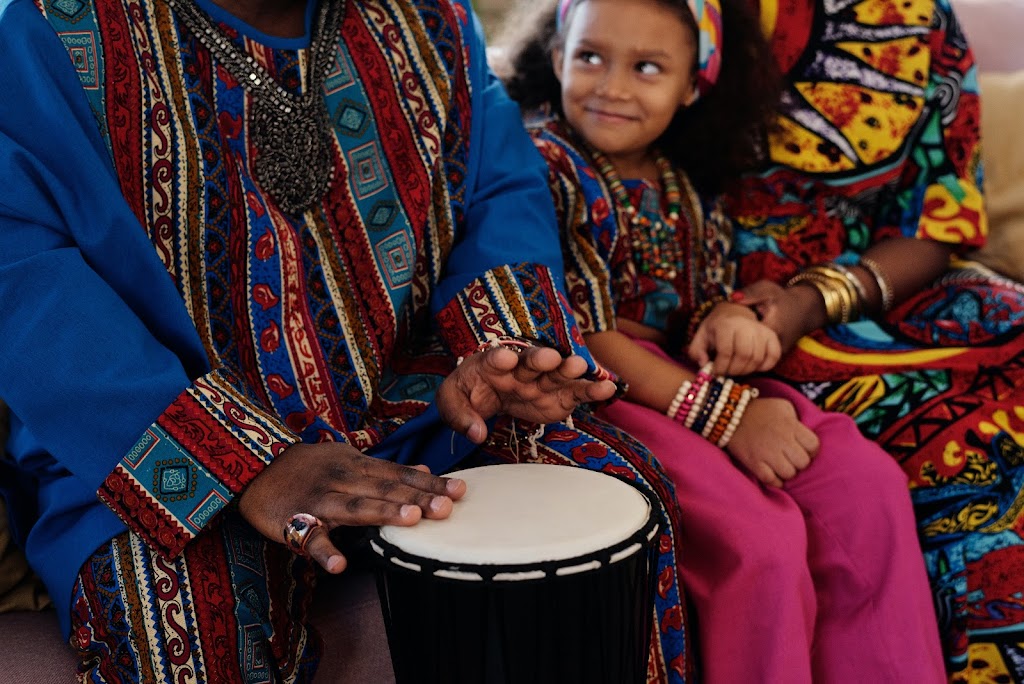
Photo by Askar Abayev For all the Shades of Us, Tones of black, Hues of white, And all that holds in between, Moving strong in harmony. Undefeated! We are Elephants! “We are chapters of revelation,” “We are travelers of science,” But we all believe in life and hope, With powerful voices, And beauty to behold, We are Lions! From the land of wonder, We all rise from gold, Strong in our hearts, With spears in our fists, And fire in our voices, We are warriors! We move to the beats of our blood, Our feet firm, And hips warm, Dancing to the drums of our fathers, One rhythm at a time, We are dancers! Our resilience is in our ancestry, A common culture shared, In wealth and royalty, We are Kings, We are Shaka, We are Mansa, We are Asantewa, We. Are. Africans! © Safiyah Salawu-Ibrahim, Shades of Us Africa.
Allow Us to Re-Introduce Ourselves
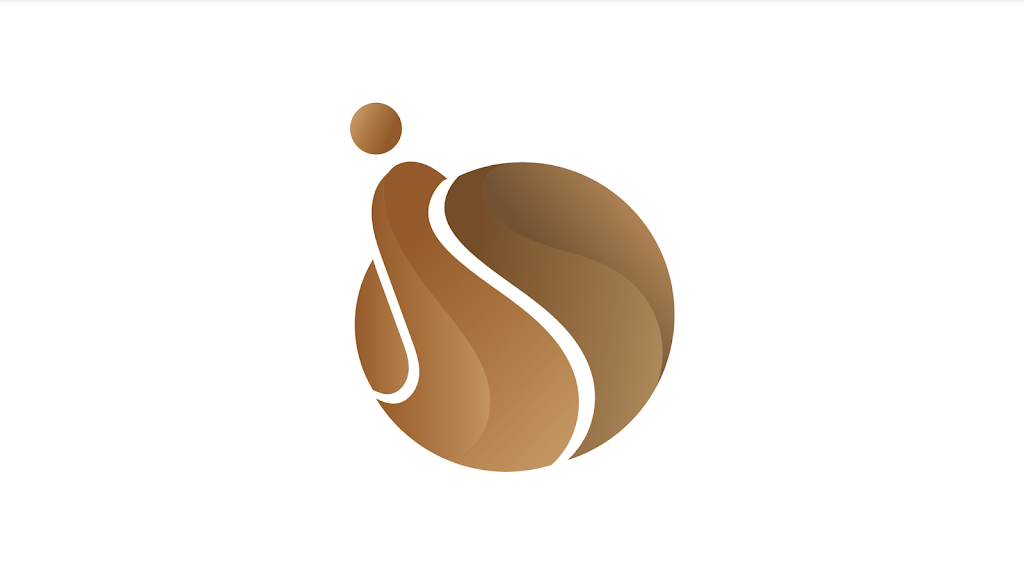
Shades of Us Storytelling Initiative for African People (‘Shades of Us’) is a non-profit organization using storytelling to address the socio-economic issues affecting Africa, Africans and people of African descent. This is with a view to facilitating open and honest conversations that lead to introspection, analysis and perspective change towards the greater goal of a redefined continent and people. Shades of Us was founded on April 28, 2014, by Ramatu Ada Ochekliye to address dysfunctional social issues peculiar to Africans living on the continent, or descendants of migrants who may have voluntarily moved to other continents or may have been forced – through human trafficking and slavery – to leave. Goal: To promote a just, equitable and sustainable society for Africans and people of African descent. Objectives: – To use storytelling to promote equitable societies for African people; – To spark conversations on human rights, roles and responsibilities for more equal African societies; – To promote African cultures and increase indigenous, national, regional and continental pride in our heritage; – To promote learning, development and capacity building of young people to push for African development and growth; and – To create safe spaces for survivors of abuse geared at facilitating healing and shared communities for growth. The founding principle of Shades of Us is the belief that all human beings are equal, have the same basic human rights and should be accorded the same respect and opportunities that guarantee their growth and development. Based on this founding principle, Shades of Us is subscribed to all thirty articles of the Universal Declaration of Human Rights and works towards promoting these rights for every human being, with special focus on Africans and people of African descent. Beyond the human rights declaration however, Shades of Us has adopted eleven of the seventeen Sustainable Development Goals (SDGs) as focal points of implementation. These goals include: no poverty; zero hunger; good health and wellbeing; quality education; gender equality; clean water and sanitation; decent work and economic growth; reduced inequalities; climate change; peace, justice and strong institutions; and being open to partnerships for the goals. They translate to Goals 1, 2, 3, 4, 5, 6, 8, 10, 13, 16 and 17 of the sustainable development goals. Shades of Us believes that the promotion of gender equality and reduced inequalities are the springboards to achieving all the other goals adopted. The organization is especially bias towards the issues that affect women and children. This is because globally, African women and children have been the most disenfranchised in all indices of human development. Speaking up for, and standing against societal norms that predominantly affect women and children, becomes the only recourse to redressing years of inequality and the drawbacks associated with it. What does Shades of Us offer? The answer is simple: storytelling. We tell stories for Africa, her people and descendants of her people. These stories are channeled through various platforms to engender discussion. They include: 1. The Blog: Primarily started as a site to air personal opinions, Shades of Us has grown to a magazine of articles, in-depth interviews, news and fictional stories from various writers. 2. Podcasts: Shades of Us has two podcasts: The Review and The Social Commentary. On The Review, the overarching themes in the art (music, movies, TV shows, books etc) produced by Africans and people of African descent are discussed and analysed to see how they shape society. With the Social Commentary, discussions around socio-economic issues affecting people are at the forefront of the conversation. 3. Video log: This is similar to the social commentary with special focus on issues affecting women and children. 4. Films: The organization produces short films that address the general theme of our work. This will expand further to feature length films, documentaries and other productions in the audio-visual category. 5. ‘Did you know?’ Quick-E videos: These showcase facts about indigenous African peoples and cultures are shared as short snippets. It is a fun way to learn about people who share the same skin tone and socio-cultural issues yet, are vastly different from us. The ‘e’ in Quick-E is Education. 6. Forum Fridays: This is a live interactive session where the audience does the talking. It would entail picking up trending topics and hearing their thoughts, feelings, rebuttals and rants. 7. Community Engagement: Beginning in 2016, Shades of Us started partnering with other organizations like Save Our Women (SOW) Foundation, Women Regaining Value, Stand With A Girl (SWAG) Initiative and Jela’s Development Initiative (JDI) to move our activism from the digital space to impacting, in-person actions. This will continue to happen in line with goal 17 of the global goals. And beginning in 2022, Shades of Us will host what would become an annual event called Safe Spaces. This is an avenue to bring together victims of abuse to talk about their abuse, how it affects their lives, how society – families, schools, governing authorities, law enforcement etc. – reacts to their abuse and what hope they have going forward. Another aspect of our community engagement will be through basketball and filmmaking. We will use these avenues to train young people to become the best versions of themselves. For years, our identity and brand has revolved around these areas of engagement. When we started Shades of Us, we designed our logos to be feminine because first, we are a feminist organization, and… they described the core of the work we were focused on. While that remains our core mandate, our next phase will be more inclusive. We have grown from personal commentaries on Facebook to a fully incorporated non-profit organization registered in Nigeria. We intend to branch out to eleven other countries in Africa and the Caribbeans: Ghana, Rwanda, South Africa, Seychelles, Botswana, Mauritius, Madagascar, Kenya, Uganda, Barbados, and Jamaica. We want to tell stories about women, children, men, gender non-conforming individuals, people with disabilities etc. As such, we designed our new logo to be more representative of all the shades of us. So…it is with immense
When No One Is Looking
Photo by Gantas Vaičiulėnas from Pexels As long as I can remember, I have always cared about the issues that affect Africa, Africans and people of African dissent, with special focus on how these issues affect women and children. Even as a child in primary school, I can remember expressing anger at people who treated women and children poorly and standing up for the girls in my class. It would not be far-fetched to assume I was born this way, having what can be described as a gnawing need to lend my voice to women and children’s issues. I was probably around 10 years old when I learned about basic human rights and the government’s role in protecting them. Without meaning to, that became my Bible and code of conduct. I started creating content from a very young age. I wrote stories and school plays that centered women and children in roles that were not usually associated with their sex or age. These stories became church dramas because for most of my teenage years, I found expression in the church. Granted, most of what I created then was quite gruff and had a diamond-in-the-rough kind of feel but a central theme shone through all my pieces: women and children were human in themselves and needed to be treated with the full respect accorded to them by their basic rights. I remember a play I wrote that we performed in church. It started with the parents of the lead character – a young teen – finding out that she was pregnant. Rather than be judgmental, it promoted allowing yourself to be hurt if your child gets pregnant ‘out of wedlock’ but, loving (and supporting) the child regardless. It showed that children were themselves overwhelmed by the consequences of their actions and beating them or kicking them out of the house was not a fair way to handle the issue. This play connected so well with people that the way teen pregnancies were handled – a problem that was predominant in the community where the church was situated – became markedly different. It was for this openness that I was chosen when I was about 14 years to be part of a peer-education capacity building session on complete sexuality education. This opened my mind’s eye to the Millennium Development Goals and a world bigger than the things my environment had constrained it to. I began to actively promote these goals because I was: unhappy that the world didn’t take the eradication of extreme poverty and hunger as seriously as it should; wondering what could be done to achieve universal primary education; sure I needed to actively promote the idea of gender equality and the need to empower women; broken at the rate of child and maternal mortality and wondering how I could help; hated all discriminatory acts to people living with HIV/AIDS in a world where it was okay to do so; didn’t want anyone to die from Malaria or any other disease that could easily be prevented with small lifestyle changes; and, hated that our environment was gradually becoming dirty and unsustainable as a result of poor sanitation due to reduced enforcement of communal environmental protection activities. These issues became my issues. They mattered to me. And I wanted to do something about them. As I grew from teenager to young adult, I began to refine the areas that I was interested in. While I wanted to work in the field to directly help women and children, I knew it was cost heavy and living on the poverty line myself at that time, I didn’t think there was much I could do to help these people. So, I chose a path that centered more on creating content that could cause a mind shift in the general public and change behaviors that put women in boxes marked, ‘second class citizens’. I continued to write stories and plays for church, making sure to include the women empowerment nuggets in the overall message of the Christian faith. With the advent of social media, I found a bigger outlet for my work…especially as I was questioning faith and removing myself from the church. I began to share my views – my very gruff and many times, antagonistic views – on my social media platforms. A friend told me about blogs and the possibilities they held for massive, and maybe even global, reach. So, I learned about this new frontier of communication and started my blog: Shades of Us. I continued to evolve as a person, finding more perspectives to human rights and seeking even more succinct ways to communicate my ideas around them. When I heard the word ‘feminist’ during Chimamanda Ngozi Adichie’s TedX Talk – We Should All Be Feminists – I knew this was the word that perfectly described exactly who I was and the issues that mattered to me. So here I was: Ramatu Ada Ochekliye, creating content around the Sustainable Development Goals and hoping I could change the world with my words. But, reality check. The world really doesn’t want to be changed. If the world has its way, it will continue to be patriarchal, misogynistic and abusive to women and children. It would continue to express hate against people whose sexuality is different from the accepted norm. It would continue to be intolerant of people’s rights to association, religion, belief and dignity. This is why, my work – and the work of other feminists, human rights activists and advocates, and anyone who just believes in the basic rights of all human beings across the world – can be really tasking. Nobody tells you that it is easier to maintain the status quo, as oppressive as it is, than it is changing anything. And because of this, many activists suffer the painful burnout that comes with wondering if their work even means anything. Oh! There are many reasons to keep
Flip The Switch
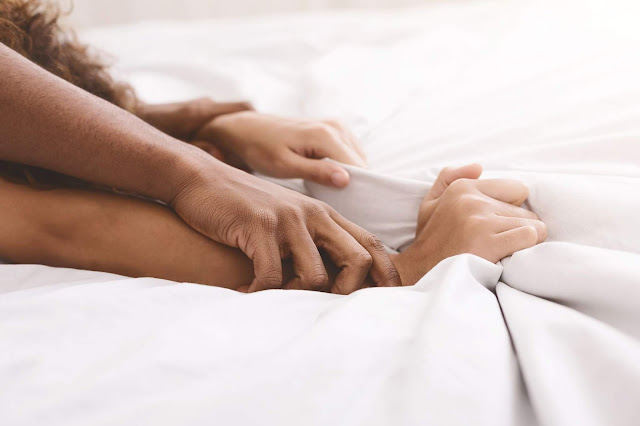
Image Credit: Men’s Health Edikan felt Ama turn in her sleep as she gained consciousness. He had listened to her troubled sleep – marked by her slight snoring – for the past hour; even though his back remained turned to her. Their fight last night had been the worst in the six months they had been dating. And for the first time since he moved into her apartment, they had slept on each end of the bed. Sleep? He barely had any. The gap between them as he pretended to sleep could have been a chasm for all he cared. How could she sleep after all that was said yesterday? The only sign that she was as hurt as he was were the sounds of her heavy breathing whilst she slept. Many times during the night, he wanted to turn to her and ask that they resolve their fight immediately. But he waited, knowing that morning would bring some form of clarity to her. And maybe, just maybe, all the things she hurled at him last night, all the… He stiffened as Ama turned into him, fitting her body into the curve of his spine and wrapping her leg around his. Her pointed nipples pressed into his back as her warm breath caressed his nape. He stiffened further when she began to trail her fingers down a path to his already throbbing penis. His breath caught in his throat when she wrapped her palm around him, tightening her grip a bit…enveloping him in an unspoken promise. She began to rub ever so gently from his tingling tip to its base, pausing to caress his balls before resuming the journey back up to his tip. ‘Babe…’ he began to utter whilst trying to remove her hand from him. He was surprised at the strength she used to turn him on his back. Her full breasts invited him to drink in their glorious beauty, just as they disappeared to show her spine arch all the way up to the mounds that were her butt cheeks. A moan escaped him when she replaced her palm with her mouth. ‘Babe…wait a minute…we need to t…’ he sucked in his breath as she took in most of his length all the way to her the back of her throat. If he didn’t stop her now, he wouldn’t be able to resist the yearning that was throbbing in his core right now. But he couldn’t continue to let her use sex to ignore their fights, or ‘apologize’ to him. They needed to talk. When she came up for air, Edikan put his palms over his penis and rolled away from her, mistakenly hitting her head on his way away from her. ‘What the fuck?!’ Ama exploded. He rushed back to her. ‘I am sorry. Are you hurt?’ he asked, holding her face and looking into her eyes. Her hands went back to his penis. ‘I will be fine when I have him in me.’ She responded, her voice husky with need. Edikan pulled away from her and got off the bed. ‘Babe, we have to talk.’ Ama followed him, running her hands slowly down her breast. ‘Yes. We need to talk…with your tongue speaking wonderfully thing to my clit as I respond in kind to your dick. Yes…we need to talk, with you taking me from behind, pounding…’ ‘Babe…’ ‘…hard into me, owning me. Yes, baby. Come talk to me.’ Edikan grabbed a pillow and put between them as she gained on him. ‘Babe, can we just talk about this? There were things said last night that…’ She tried to remove the pillow. He held on to it. She tried again. He remained adamant. Edikan watched the anger jump into her eyes as she took it all in. Her hands fell from the pillow and she took a step back. ‘Are. You. Rejecting. Me?’ The edge in her voice set him on edge. He took in a much-needed breath so he wouldn’t lash out. ‘Babe, I am not re-.’ ‘Because here I am…standing naked in front of you, basically throwing myself at you and begging you for sex and…what is this? You rejecting me? Goodness, are we there yet? Where you think…’ ‘I am not re-.’ ‘…you can reject me? I want to have sex a-.’ ‘And I don’t want to have sex, goddammit!’ Edikan watched her flinch at his raised voice. Again, he drew air into his heaving lungs. ‘I am sorry for raising my voice. But we cannot continue to do this dance where we have a fight and, rather than discuss the issue, you offer me sex.’ ‘I offer you sex? What the hell is that supposed to mean?!’ ‘Is it normal that the only time you initiate sex is when you know you have offended me? That we went through the whole of last week not being intimate because you rebuffed me every single time I so much as tried to kiss or cuddle you and now, you want to have sex? And right after we had the biggest fight in this relationship?’ ‘Oh, there I was thinking I was trying to solve the problem.’ She responded, increasing the space between them. Ama’s response irked Edikan. She knew exactly how much he hated sarcasm, especially when they were fighting. ‘You don’t solve a problem by having sex. You can’t say those hurtful words to me and think I would want to have sex. I am not someone you can just cower into submission because you suck me a little and ride me once in a while.’ ‘You didn’t seem to mind before.’ Ama muttered under her breath. ‘What was that?’ ‘Nothing!’ ‘Ama, are you deliberately trying to make this situation even worse than it already is?’, he asked, talking slowly as he struggled to control himself from another angry bust. ‘What do you expect me to think?!’ Ama plops onto the bed and pulls the duvet to cover herself.
Policing Childbirth and Risking Women’s Lives
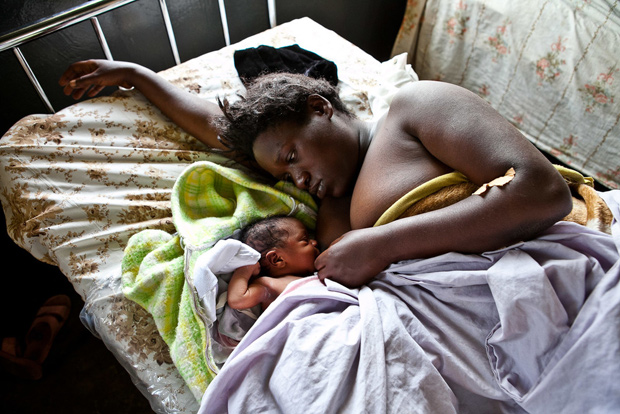
Woman breastfeeding her newbornImage: Feature Shoot My first experience with childbirth was when my youngest sister – Sadiya – was born. I was seven years old then. I remember my mum trying to put on a brave face as she was aided to the car. In all honesty, I didn’t understand what was going on, but my aunts and uncles seemed to be in a panic. I can’t remember what my father’s demeanor was, but I know we didn’t see our mother until the next day when we were introduced to our newborn sister. There was happiness, excitement and an air of love all around. If my mother was frazzled after the birth, she didn’t show it or…I didn’t notice. I gradually began to see women around me give birth to babies and carry on with their lives. They didn’t pause to take a break or stop taking care of their families. Life just went on. Then sometime in 2013, I went to visit a friend in Garkida, Adamawa State. I was a serving corps member then and my friend – a doctor – had been posted to that community for his service to the nation. I went on his ward rounds with him and as usual, was depressed by the smell of the sick mixed with pungent anti-bacterial detergents and caped off by the stinky attitudes of nurses. But the most unnerving thing I saw was the sad look of dejection on the face of a frail woman who was carrying a child on her back, with a branch of leaves hanging from the side of the baby. Without being told, I knew something was wrong. I asked my friend if carrying her baby with the leaves like that was healthy, and if he could do something about it. ‘The baby is dead. The leaves is to let everyone know.’ I looked at the woman again and felt a wave of sadness wash over me. It wasn’t that she was crying; because she wasn’t. Beyond the air of brokenness around her, she seemed so stoic in her resolve as she walked out of the hospital and into the surrounding hills. When I asked my friend what was wrong, he explained. ‘She is a nomadic Fulani woman. From my experience with them, their culture demands that they give birth with the least fuss possible. When they go into labor, they usually look for a corner and squat. They then begin to push as quietly as possible until the baby comes. Many of them are so weak by the time the baby comes and it is not unheard of that a great number of them die in the process. And in many cases, the children do not survive either. In that woman’s case, the baby came out sickly; jaundice. If she had given birth in the hospital or had come in as soon as the baby was born, something may have been done to save the child. But they wait until almost nothing can be done and by the time they make the long trek to this hospital – which is the only healthcare facility that is in this town – the baby would have died.’ I was heartbroken. Not only did the baby not have a fighting the chance, the mother also had to trek a long distance after newly giving birth; when she herself had not even healed from the traumatic experience that she had gone through. And what was the cause? A culture that said Fulani women were strong; that these women should give birth at home; that giving birth should be done silently; and one that only sought the hospital when things had gone awry. The memory of that woman walking into the hills with her dead baby strapped on her back stayed with me for a while. Soon though, the thought of childbirth went to the far recesses of my mind. A few month later, I fell ill and had to be admitted to the hospital. It was a private hospital and by the time they were ready to give me a bed, there was only one space left; the maternity ward. Two incidences happened in my brief stay in the hospital that brought the childbirth conversation back to my radar. One woman came in about ready to pop. She kept pacing up and down with barely any sign of the contractions wracking her body beyond the occasional wince. Soon, she was called into the delivery room where she had the most quiet delivery possible. When I say quiet, I mean she didn’t scream, didn’t shout, and barely even moaned. The only time she cried out was when – in my opinion – she was being stitched up after the delivery. The nurse kept saying she was such a strong woman. Less than an hour after she gave birth, she was dressed and ready to go. As soon as she entered the ward, everyone started praising her; ‘strong woman’, ‘Hebrew woman’, ‘real woman’. Even though I was weak from the receding plasmodium in my system, I couldn’t help but give a small clap when everyone did. She smiled slightly, basking in what I had come to see was the ultimate praise. Hours after she left the hospital, people were still talking about her and how ‘strong’ a woman she was. But we didn’t stay on her case for long. Another woman came in to deliver her baby and she cried like hell. She shouted, screamed, yelled and any other word that connotes expressing agony. The nurse – same one who delivered the first baby – screamed right back at her. ‘Abeg no disturb us with shout here. When you dey fuck, you no shout. Now, you wan tear our ear. Abeg! No shout for us here. Na we cause am?’ I was desperately shocked. Why the hell was it okay to shout at that woman?! Why was it okay to insult her?! Did the nurse
A Culture of Animal Cruelty
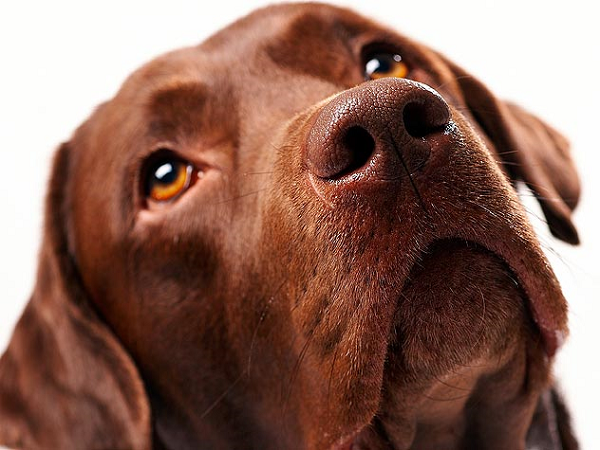
Sad Dog Image: Petfinder Have you seen where dog meat is prepared? It is the epitome of cruelty and wickedness. The dog is tied in a sack and kept in a circle of men wielding sticks. Once they are sure that the dog cannot escape its confinements, these men begin to beat the dog until it dies. I witnessed this one day and nearly threw up from the sheer cruelty of it all. The cries of the dog were enough to break me, but these men were unperturbed. They kept striking, drawing rivulets of blood that seeped out of the sack as the screams of the dog became weaker until all was eerily quiet. In all honestly, I didn’t watch till the end. I couldn’t. Those cries tormented me. But I couldn’t leave. I was out with a friend who ate dog meat and he wanted his ‘delicacy’. Before then, I had been repulsed by the fact that people ate dog meat; and I told him as much. When I got to see how dogs were killed before they were prepared, I felt even worse revulsion. How could people do something so disgustingly cruel to animals? People who don’t eat dog meat may say that they are not part of the abuse. And they would be right. But…many of us abuse animals in one way or the other. Even me! So…I also began to think of the other ways that we abuse animals. Let me give an example. Roasted catfish is one of my favorite delicacies. I make it a point of duty to get some at least once a month. One day, I decided to get the raw fish and prepare myself. When I got to the market, it was to see that they kept the fish in just enough water to stay alive. And because there were many fish in the tub, you could tell that they were struggling to be alive. Suffocating would be the most appropriate term. I didn’t think too much about it for a minute until the fish I selected was taken out of the water and a big stick was used to hit its head. I was appalled! Was that how catfish was killed?! Was it the same with the fish joints where I bought mine? I felt bad. I shouldn’t even get started with the way we treat cows; but I will. You should see how they are transported across States lines. Necks bent at awkward angles, legs tied under their bodies in positions that must be uncomfortable, and even cases where other animals and food are piled atop them are usually common place. Then imagine all those distances they have to walk because their herders prefer the nomadic style of cattle rearing instead of the ranch method. And by God, we still insist on killing these animals by slitting their throats and letting them bleed out. In fact, Christianity and Islam instruct the slaughtering of animals as the way to kill them. Proponents of these religions believe that the most humane way to kill an animal is to slaughter them. The Bible (Deuteronomy 12: 21-24) and the Dhabihahin the Islamic Tradition place emphasis on slaughtering the animal and letting the blood of the animal drain to the ground. There are more requirements in Islam that must be met but for the most part, these religions agree that slaughtering is the ‘best’ way to kill animals. But…is this true? There are many schools of thought about this. Research has shown that many animals – like chickens for examples – die as much 2.5 minutes after being slaughtered. That is a lot of pain for an animal to deal with, no matter how stupid chickens are supposed to be. And quite frankly, unfair to the animal. Personally, I think animals should be stunnedbefore they are killed. I think that is the most humane way to kill them. But I understand the draw of religion and why it is important to do as a deity demands. The bigger question is whether we should even eat meat knowing how animals have to die. I am not going to lie…I love meat. It is an important of all my meals. I enjoy the feel it brings to any meal it is in. In fact, I consider meat or fish the reward for eating a meal. This is why I believe that when animals are killed as humanely possible, it is fine to eat. It is also why, in addition to my other reasons, I will eat not dog meat. I have an aversion to swine so that isn’t even up for debate but fish…how do I handle my dilemma with their inhumane killings and my unending appetite for them? I think that is the big question for me, and my role in this mess. Thankfully, in this part of the world, we do not kill animals for sport – even though we let people come here to do so – and cases of animal fighting for gambling purposes are few and in between. But there are way too many ways that animals are treated poorly in our communities. Not only are they fed poorly or starved, they are also caged, flogged, and even poisoned. I once saw a video of a guy who caught a rat and tied it spread-eagled to a bottle. Then the guy stuck a burning cigarette in the mouth of the rat such that whenever it tried to breathe, it inhaled huge gulps of smoke. The guy laughed hysterically, as did the thousands of people who liked and retweeted his video. I was appalled that people didn’t see it for what it was; a culture of animal cruelty. And it is a culture alright! And speaking of poisoning, this is where I am part of the problem. Apologies please. I genuinely hate rats. I think after snakes, they are the most horrible animals. They are able to creep into just about
A Culture of Filth
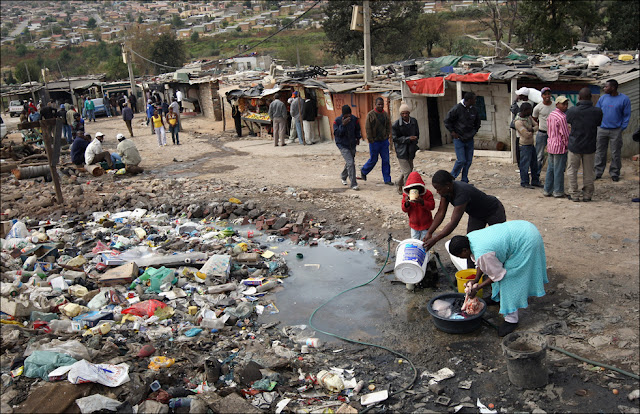
Image: Baastrop If you follow me on Twitter, you will (probably) notice that every week – and sometimes, almost every day – I talk about people who litter the environment with either their urine, feces or other waste products generated from their daily activities. From my tone, you can always tell that I am constantly angry at the unsightly result of our improper waste disposal and management. I wasn’t always this concerned about the environment. In fact, I used to be a huge part of the problem; okay…maybe ‘huge’ is stressing it too far. What I can admit is that I used to toss trash into the streets, gutters and running water and even burn plastic and other waste materials. Not only was I contributing to the dirt in the streets, I was also polluting the air. It is no surprise that at that time, my bedroom used to look like a tornado was constantly running through it. You wouldn’t call me a ‘clean girl’ for anything. My mother would fuss, and discipline, and it never seemed to work. As I got older, I got better…but not by much. Then in 2006, something happened to change my entire outlook on waste disposal. I was fresh out of secondary school and looking forward to a life as an undergraduate. I applied to Ahmadu Bello University for my first and second choice and when it was time for the Post Unified Tertiary Matriculation Examination, or what we simply called Post UME, I was excited to go for the test, and prove why I should get into the school. After a really stressful day of getting lost, struggling to find myself in a sea of people, writing the exam and wondering how I was going to get back home, I decided to have a snack; I had not eaten all day. I bought a sausage roll – Gala – and a drink and sat down at the Social Center to eat. When I was done, I picked up my empty bottle and sausage wrap and crossed the road towards Amina Hostel. As soon as I crossed, I looked around and dropped my empty bottle and wrap on the ground. Just as I did that, my eye connected with a guy who was looking directly at me. I stopped. You know how they say you can shoot darts with your eyes? Well, this guy was shooting grenades! Without one word uttered, I could feel his disapproval, disappointment and anger at my littering. It was in that moment that I really took in my surroundings. There were waste bin every 100 metres and the school environment was clean and the lawn perfected mowed. In fact, there was one waste bin right in front of me. But I hadn’t seen it. I want to blame the stress I had been under but in all honesty, I may not have used it regardless. Remember that I have established that I was the type of person to toss things out into the street, right? Well, my bottle of fizzy drink – and its accompanying sausage wrap – was the aberration to what was a well maintained, really clean environment. It felt like I had insulted the ground – and faculty – of the school. I was awash with embarrassment. Why did I have to openly disregard this beauty that was so carefully put together? Why did I have to show myself like this?! I imagined what the guy must have been thinking about me. I need to put out a caveat though; I wasn’t attracted to the guy. I didn’t want to be liked by the guy. It wasn’t like I wanted to impress him. But the look which he shot me was rife with silent disapproval and judgement. I felt that he had seen into my soul and concluded that I was destructive to the earth. I imagined him thinking me ‘local’, ‘unsophisticated’ and maybe even a ‘village girl’. I was ashamed of myself for not being a better a person. And because of the insecurities I had already been feeling in the new…different environment, I wished I could go back in time and undo my act of sacrilege to the hallowed grounds of the university. To salvage the situation, I acted like I had dropped the trash on purpose. I opened my bag, pretending to look for something and then, bent down to pick them up and toss them into the trash can. With that, I walked away with my shoulders squared, head held high and lips in a defiant pout. But…not before I stole a glance at the guy and saw the beginnings of a smile on his face. That day, I made the choice to stop indiscriminately disposing waste. If I cannot dispose my waste in a proper way, I put it in my bag until I can. The ripple effects of that stink look stayed a long time with me and made me want to be a better person; first to myself and then to my community. I started to clean my house more, keep the ‘tornado’ at bay and generally, act better. As expected, the more concerned I was about my environment, the less tolerant I was of people who littered and worse, peed and pooped in public spaces. Having mentioned that, I have a confession to make. Sometime in 2013, a friend and I went out on a date. I remember drinking from a packet juice and taking some water with the snacks I had. When we returned to his house and I was about to set out for mine, he asked if we could extend the night by taking a stroll. I agreed. Before we left however, I asked for some water and I downed the 60cl sachet that he brought. I felt like peeing, but the pressure wasn’t much. So, I ignored the call and we went out. We took a stroll through the neighborhood and talked and

